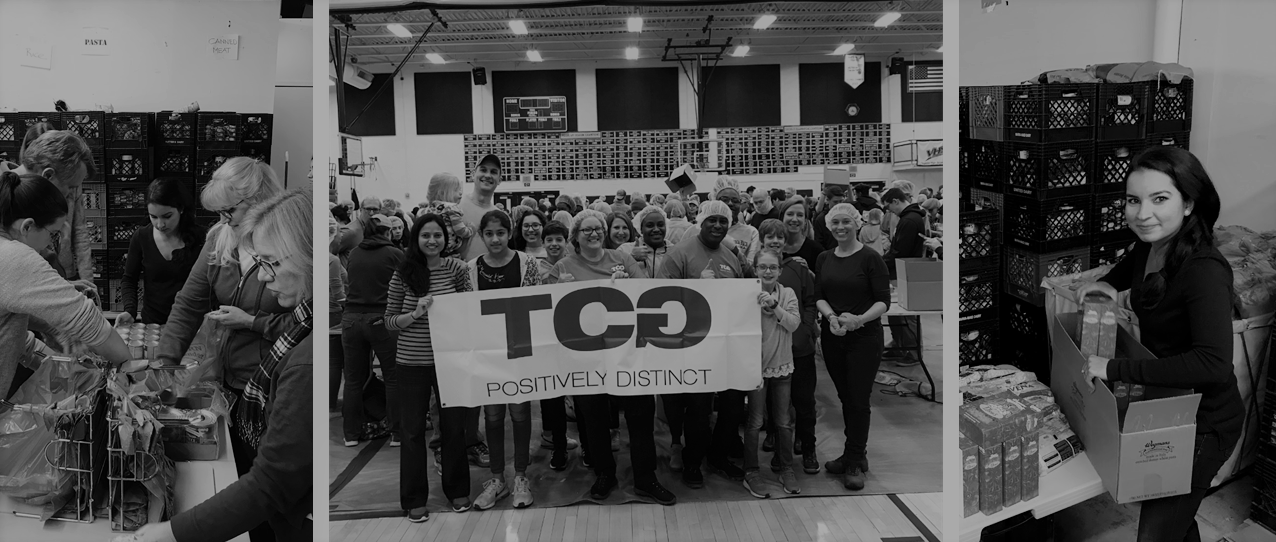Food-Insecure Families

Each year, to improve the lives of those around us, TCG employees vote to select a focus for the company’s support. In 2020–2021 we selected food-insecure families.
Food insecurity refers to the state of being without reliable access to a sufficient quantity of affordable, nutritious food. About 11% of households in the US are estimated to have experienced either low or very low food security at some point during 2018 (the most recent year data has been published by the USDA), and more than 1 in 10 households in the Washington, D.C. metropolitan region — close to 500,000 people in total — are considered to be food insecure. We know that the economic and societal impact of COVID-19 has caused that number to increase dramatically.
Most of the people affected in our region are children. School closures due to COVID-19 have exacerbated this issue as many children who would normally get free lunches at school may not have access to them right now. Families who struggle to afford enough food often have to purchase inexpensive but unhealthy foods in order to have enough for everyone. The lack of a healthy, balanced diet can lead to a variety of health issues such as obesity, hypertension, and type 2 diabetes. This map, provided by the Capital Area Food Bank, provides insights into the scope of the problem in our region. Use the filters to see different information such as where food deserts are located and demographics.
Just as important is the economic impact of food insecurity. These include hospitalization costs associated with poor nutrition (especially among children), lower productivity among workers who experienced hunger as kids, a less competitive and prepared workforce overall, and more time away from work to deal with family sickness and needs associated with hunger. As an Iowa study showed, “Child hunger itself costs the U.S. economy at least $28 billion per year.” This is a staggering inefficiency in the US economy, and addressing food insecurity has enormous positive benefits: as studies from USDA have shown, a $1 billion increase in program benefits would increase US Gross Domestic Product (GDP) by $1.54 billion, and add 13,560 jobs.
TCG is taking action to fight food insecurity, and to create the conditions under which families, businesses, and communities can thrive.
- In June, each TCGer was given the opportunity to direct a $5 donation to one of four organizations that work toward fighting food insecurity. Donations were made to Capital Area Food Bank, DC Hunger, Roots for Life, and the DC Food Project.
- 1% of the company’s annual profits will be donated to one or more of the charities mentioned above.
- We will partner with a nonprofit to encourage a grocery store or co-op to open or to begin delivering food in a food desert in an underserved minority-majority area in the DC region.
- TCG uses Bonus.ly, an employee recognition platform, to award points for achievements and contributions by our employees. This year, employees may redeem Bonus.ly points as monetary contributions to organizations working to solve food insecurity.
Additional activities will be planned throughout the year to bring awareness to the issue and address problems with food insecurity locally. Visit tcg.com/about-us/b‑corp/ to keep abreast of our activities.